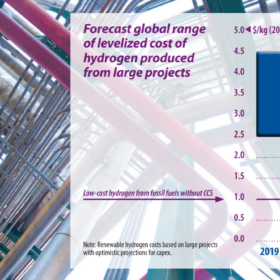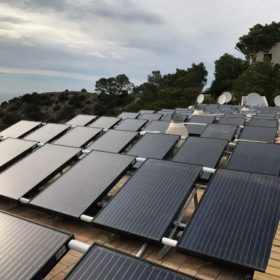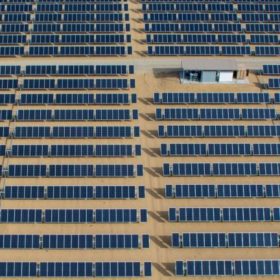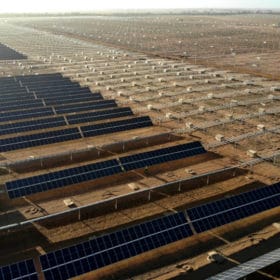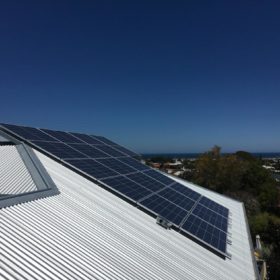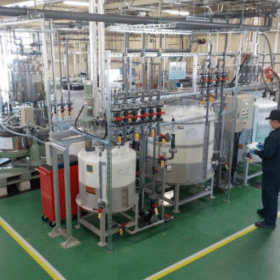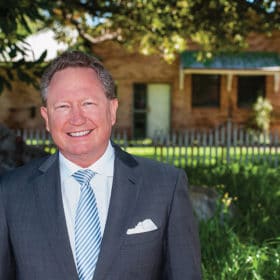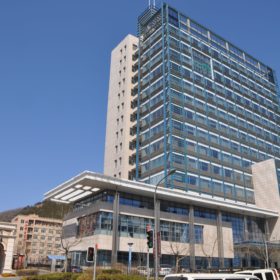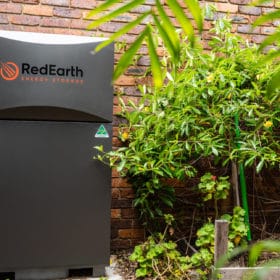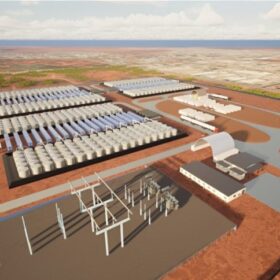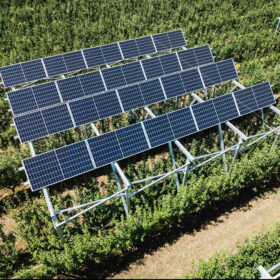Saturday read: More than just a pipe dream
When coupled to gigawatt-scale solar and wind generation, green hydrogen could be the clean fuel to unlock hard-to-electrify sectors of the economy. But first it must be transported cost-effectively to where it’s needed.
PV-thermal technology earns tick of approval from IEA
Solar module developers have long recognised the detrimental effects heat has on cell performance but West Australian company Sunovate has pointed to solar PV-thermal (PVT) technology as an opportunity to value add by improving efficiency.
New report identifies digitalization as renewable energy driver
Digitalization is expected to play an increasingly important role in the renewable energy sector with a new international report highlighting it as critical for the continued expansion of wind and solar PV power generation.
ANU experts claim doubling rate of renewable deployment only path to net zero
Experts from the Australian National University have published a technical paper in which they argue a doubling of the rate of deployment of solar and wind would cut Australia’s carbon emissions 80% by 2040.
South Australian rooftop solar switched off in search for stability
The search for power system security has sparked an Australian first with the Australian Energy Market Operator (AEMO) confirming South Australian energy authorities switched off 67 MW of rooftop and large-scale solar PV at the weekend when electricity demand plunged to a near-record low.
West Australian vanadium explorer signs agreement with Japan to scope state’s potential for flow battery electrolyte production
A West Australian vanadium explorer, Technology Metals, has signed an agreement with a prominent Japanese company to explore the possibility of manufacturing vanadium electrolyte in Australia – a key component of the increasingly popular vanadium redox flow batteries.
Fortescue brings forward emissions reduction targets by betting on green hydrogen projects
Iron ore giant Fortescue Metals Group has brought forward its net zero emissions target a decade to 2030 by advancing a raft of green hydrogen and ammonia projects. The mining company believes it’s green energy ambitions will demonstrate how the two “missing links” in the battle against climate change can decarbonise supply chains.
ARENA funds UPowr’s effort to improve DER with customer insights
The Australian Renewable Energy Agency is helping to fund a trial by Distributed Energy Resources firm UPowr which will monitor solar customers interested in incorporating a home battery system. The aim of the project is to better incorporate customer experience insights into the design of DER products.
An aluminium battery that can charge in a fraction of a second
Scientists in China and the United States investigated the inner workings of aluminium-ion batteries. With new insights into mechanisms at work within the battery during cycling, the group was able to demonstrate a battery capable of ultrafast charging, with the highest capacity so far reported for an aluminium battery.
RedEarth deal to see thousands of new homes built with solar-battery systems
Battery storage manufacturer RedEarth has partnered with a major Australian housing developer to offer new-home buyers solar and solar/battery systems tailored to their needs from the get go – and with the opportunity to sell excess energy at optimised prices where the grid needs it most.
